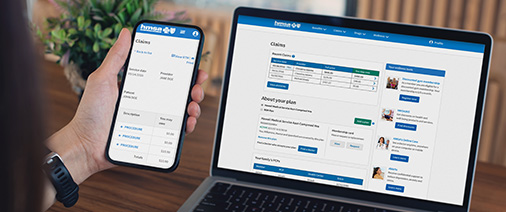What is postpartum?
Postpartum is the term used to describe the 12-week period after birth. It usually applies to the birthing individual.
What is a postpartum visit? Why is it important?
Postpartum visits take place after giving birth. Your first visit should be within three weeks of delivery.
These are critical visits and time for you and your doctor to ensure that you’re healthy and recovering as you should.
Your body goes through many changes during pregnancy and after childbirth. You may experience vaginal swelling and bleeding, fatigue and mood swings, and breast (chest) tenderness and blocked milk ducts. You may have questions about breastfeeding (chest feeding), birth control, and when you can resume having sex. You should discuss health conditions that resulted from pregnancy or existed before pregnancy (such as diabetes and high blood pressure).
Your postpartum visits will help support your long-term health.
What are baby blues?
Baby blues, also known as postpartum blues, is the term used to describe the hormonal changes that may cause anxiety, crying, and restlessness. It’s common for most parents to experience some degree of baby blues after giving birth, whether it’s their first birth or not.
Here are some signs of the baby blues:
- Experiencing some sadness.
- Crying for no reason.
- Feeling restless or anxious.
- Feeling impatient or grumpy.
- Finding it hard to concentrate.
- Feeling like you’re not yourself.
- Experiencing mood changes.
These feelings tend to decrease or go away within the first two weeks of giving birth. If they last longer, it may be postpartum depression. Call your doctor and tell your family and friends how you’re feeling to get the support that you need.
What is postpartum depression?
Postpartum depression is a mental health condition that develops in the first year after childbirth or a miscarriage. It can affect your ability to care for yourself and your child. You might feel hopelessness and an extreme sense of despair. It affects more than one in every 10 individuals. It’s more serious than the baby blues and it’s important to seek help quickly.
Here are some potential signs of postpartum depression:
- Experiencing extreme sadness, guilt, and panic.
- Crying, anxiety, and worry.
- Feeling overwhelmingly exhausted.
- Feeling hopeless and that you’re not good enough.
- Unable to focus or remember things.
- Having scary thoughts about yourself or your baby.
- Fear of being alone.
If you’re experiencing any of the above, contact your doctor immediately and tell your family and friends. Or contact PPD Support HI1. You matter and getting the proper support will help you get better.
What are postpartum complications? Should I be concerned?
Postpartum complications can range from mild to severe. Anyone who is planning to give birth should be aware of the potential complications. If not addressed immediately and appropriately, postpartum complications could impact your long-term health – and may even result in death.
Here are some common postpartum complications:
- Heart disease.
- Infections that can quickly become severe.
- Excessive bleeding after giving birth.
- Cardiomyopathy, a disease of the heart muscle that makes it difficult for your heart to pump blood to the rest of your body.
- Blood clots that may become severe or even fatal.
- Stroke.
- High blood pressure.
- Amniotic fluid embolism, a rare but serious condition that affects the blood stream.
If you’re experiencing any of the above symptoms, contact your provider right away, go to your nearest emergency room, or call 911.


